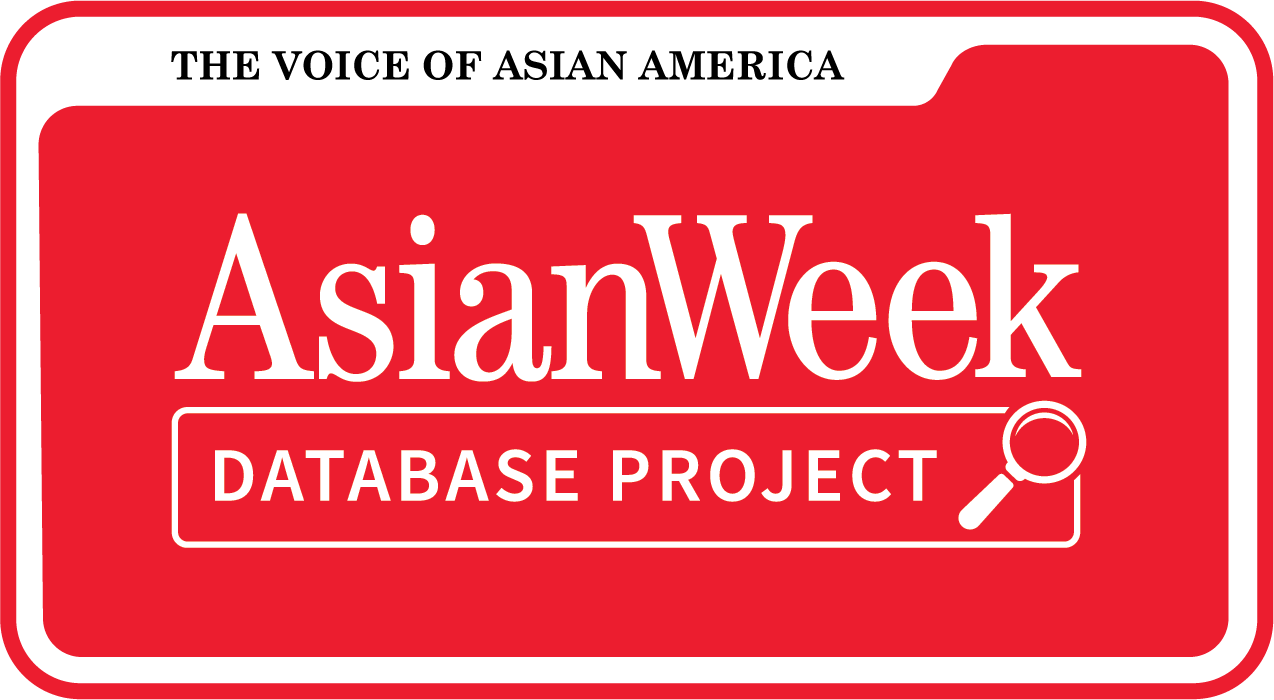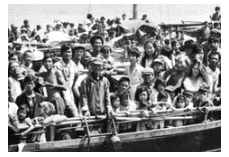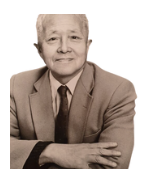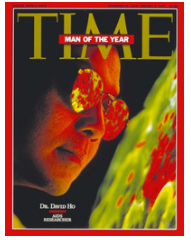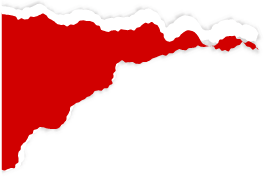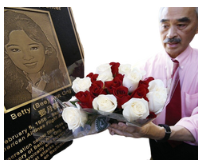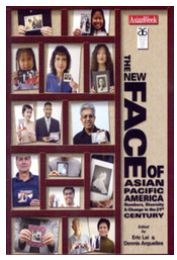ASIANWEEK PACIFIC AMERICA: 1965-2020
The 1965 Immigration Act opens door for Asians to America. More than 95% of the 22.6 million Asian in America (as of 2020) arrived after or were born in America after 1965.
1965
The Asian American Movement begins at University of California, Berkeley, to unite under one identity in the United States.
1968
March Fong Eu was elected Secretary of State of California, becoming the first Asian American woman ever elected to a state constitutional office in the United States. Earlier in 1966, Eu had been elected to the California State Assembly becoming the first Asian woman
1974
elected to a state legislature in the U.S. In 2019, The California Secretary of State/State Archives Building Complex was officially renamed the March Fong Eu Secretary of State Building, becoming the first California state office building named after an Asian American woman.
Known as the “Vietnamese boat people,” an estimated 2 million Vietnamese refugees flee after the Vietnam War. Eventually more than 500,000 Vietnamese people resettle in America.
1978
John Fang establishes AsianWeek, the first and largest English news organization for Asian Americans, based in San Francisco.
1979
AsianWeek declares the 1980s "The Decade of the Asian," as U.S. Census breaks down the Asian category by race for the first time, and Asian Americans become the fastest-growing ethnic group in America.
1980
The winning design for the Vietnam Veterans Memorial in Washington, D.C., is awarded to 21-year-old Yale architecture student Maya Lin.
1981
In June, Vincent Chin, a Chinese American draftsman, is beaten to death by two white autoworkers after being mistaken for Japanese, near Detroit, Michigan. Chin's killers are sentenced to three years' probation and a fine of $3,000 plus fees.
1982
In January, Ellison Onizuka becomes the first Asian American to fly in space, aboard Space Shuttle Discovery, during the United States' first space shuttle mission. In January 1986, Onizuka is one of nine astronauts killed onboard the Space Shuttle Challenger when it explodes shortly after liftoff.
1985
President Ronald Reagan signs the Civil Liberties Act of 1988. The federal law apologizes for Japanese American internment during World War II and provides reparations of $20,000 each to 82,219 survivors and descendants.
1988
Michael Chang, 17, becomes the first Asian American and youngest male to win a tennis Grand Slam event, the French Open.
1989
George H.W. Bush signs a bill to extend Pacific/Asian American Heritage Week in May to become Asian Pacific American Heritage Month. In 1992, the month of May is officially designated Asian American and Pacific Islander Heritage Month.
1990
Sa-I-Gu, or 4.29 (April 29th) in Korean, marks the start of the Los Angeles riots, after the Rodney King verdict acquits L.A. police officers. South Central Los Angeles Koreatown is damaged heavily, with Korean Americans left to defend their businesses themselves after receiving very little support from local authorities.
1992
Kristi Yamaguchi wins her second World Championship title in women's figure skating and becomes the first Asian American to win an Olympic gold medal, at the Winter Olympic Games in Albertville, France.
Taiwanese American scientist Dr. David Ho is named TIME Magazine's Person of the Year for his HIV/AIDS research.
1996
President Bill Clinton signs the U.S.–China Relations Act of 2000, granting China permanent normal trade relations with the United States. Between 1980 and 2004, U.S.-China trade rises from $5 billion to $231 billion. In 2006, China surpasses Mexico as the United States’ second-biggest trade partner, after Canada.
2000
Betty Ann Ong is a flight attendant aboard American Airlines Flight 11, the first airplane hijacked during the September 11 attacks. She relays vital information about the hijacking, which leads to the unprecedented order to close the U.S. airspace for the first time in the country's history and the directing of 4,546 airplanes to land.
2001
UCLA-AsianWeek publishes the New Face of Asian Pacific America, an analysis of the 2000 U.S. Census.
2003
Many Asian Americans played key roles during the Iraq War:
- Army Chief of Staff Eric Shinseki publicly clashes with Secretary of Defense Donald Rumsfeld on the planned number of troops needed. Shinseki is allegedly forced into retirement over his dissent.
- Marine Corporal Edward Chin drapes a U.S. flag over Saddam Hussein’s statue, marking the symbolic end of the Battle of Baghdad. - Major General Antonio Taguba authors an internal United States Army report on the abuse of detainees held at Abu Ghraib prison in Iraq. In June 2008, Taguba accused the White House administration of committing war crimes and torture.
2003-2011
In January, Edwin M. Lee is appointed the first Asian American mayor of San Francisco, filling a temporary mayoral vacancy. Asian Americans are more than 35% of the city's population and dominate the city's top elected offices. San Francisco is dubbed "the capital of Asian America." Later that year, he runs for a full-term election and wins.
2011
Chinese people become the largest group of immigrants to America, surpassing Mexican immigration to U.S. for first time.
2013
More than 60 Asian American organizations sue Harvard for discriminatory admission policies. In 2019, the federal judge rules that the admission policies do not discriminate against Asian Americans.
2015
In August, U.S. Senator Kamala Harris is selected by Democratic Presidential candidate Joe Biden as his running mate for Vice President. When Biden is later elected President in November, Harris, who is of East Indian and Jamaican descent, becomes the first female, first Asian American and first African American to hold this office
2020
The COVID-19 coronavirus arrives in the U.S., spreading anti-Asian racism as the virus is believed to have originated from China.
